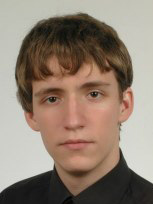 Following a generous donation, the BSDB has instituted the Dennis Summerbell Lecture, to be delivered at its annual Autumn Meeting by a junior researcher at either PhD or Post-doctoral level. The inaugural Dennis Summerbell Lecture was given by Iwo Kucinski at the 2016 BSDB Autumn Meeting. His work was carried out in Eugenia Piddin’s laboratory at the Gurdon Institute, University of Cambridge. The lecture was entitled “The molecular signature of the loser cell status reveals key pathways regulating cell competition”.
Following a generous donation, the BSDB has instituted the Dennis Summerbell Lecture, to be delivered at its annual Autumn Meeting by a junior researcher at either PhD or Post-doctoral level. The inaugural Dennis Summerbell Lecture was given by Iwo Kucinski at the 2016 BSDB Autumn Meeting. His work was carried out in Eugenia Piddin’s laboratory at the Gurdon Institute, University of Cambridge. The lecture was entitled “The molecular signature of the loser cell status reveals key pathways regulating cell competition”.
Abstract:
Cell competition is a process conceptually similar to natural selection at the cellular level. In this process a population of less fit cells (losers) is sacrificed and eliminated by a population of fitter cells (winners), with the ultimate goal of maximising tissue and organism fitness. This mechanism has been proposed to play a role in tissue health and turnover and in disease states such as cancer. Despite its discovery four decades ago and increasing examples of mutations inducing the loser status, the molecular properties that earmark cells as losers have not been identified.We identified molecular differences between winner and loser cells through comparative transcriptomics of two seemingly functionally unrelated mutations, which share the loser phenotype: Minute heterozygous mutations (ribosomal defect) and a mutation in mahj (involved in cell polarity and protein degradation). This revealed a molecular signature composed of a core set of genes that are differentially expressed specifically in loser cells.Through subsequent functional analysis we found that three components of this signature play an important role in controlling proliferation and cell death during cell competition. First, loser cells chronically activate JNK signaling, which restricts their intrinsic growth rate. Secondly, the constitutive activation of JAK/STAT pathway promotes proliferation of loser cells but also nonautonomously fuels the expansion of competing wild-type cells, boosting cell competition. Thirdly, we find that chronic activation of Nrf2 induces the oxidative stress response and that this serves a dual purpose: it promotes survival of loser cells on their own, but it is also sufficient to trigger their elimination when they are confronted by wild-type cells. Altogether these findings provide important new mechanistic insight on how cell competition occurs.
